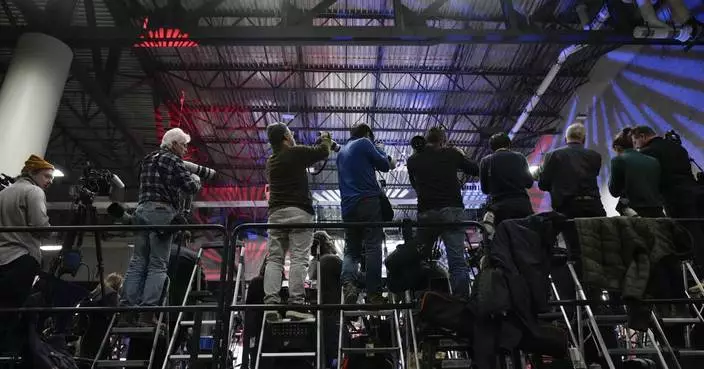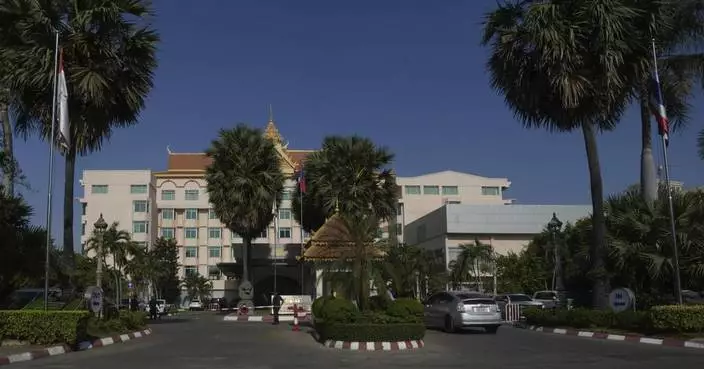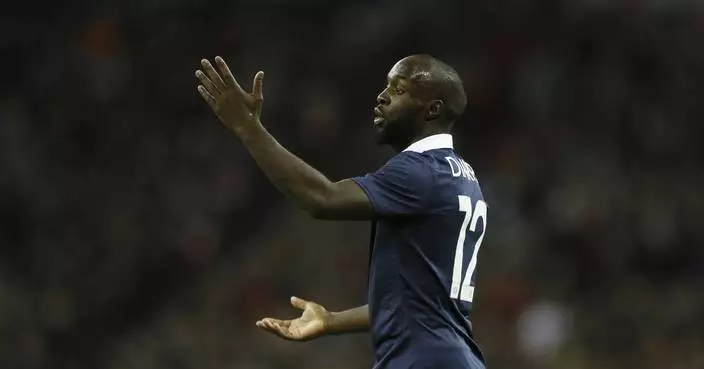Spain's Prime Minister Pedro Sanchez is expected to call an early election after his minority government's budget proposal was rejected by lawmakers.
An announcement on the ballot's date is expected at 10 a.m. (0900 GMT), which will put Spain on the path to its third general election in less than four years. That's a symptom of an increasingly fragmented political landscape and a sign of how Catalonia will remain a thorny issue for the next leader.
Here's a look at how things unfolded and what to expect from a new general election:
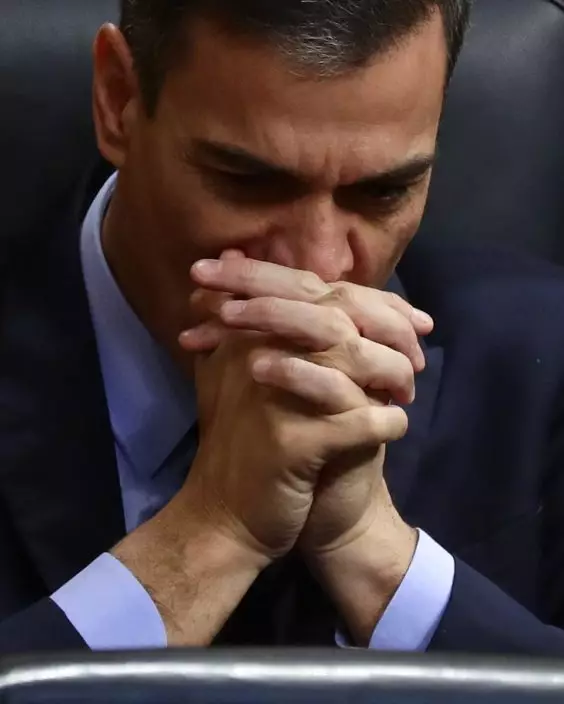
FILE - In this Wednesday, Feb. 13, 2019 file photo, Spain's Prime Minister Pedro Sanchez at the Spanish parliament in Madrid. Sanchez is under pressure to call an early election with an announcement expected Friday Feb. 15, 2019, putting Spain on the path to its third general election in less than four years. (AP PhotoManu Fernandez, FILE)
HOW DID SPAIN GET HERE?
There was a time when Spanish politics was largely a two-party business: the Socialists and the conservative Popular Party (PP). Each took turn in power, often relying on the nationalists from regions with a strong cultural identity as their parliamentary crutch.
However, since the 2008 global financial crisis and the recession that followed, Spain's political landscape has been shaken, notably with the formation of the anti-establishment Podemos (We Can) party and the pro-business Ciudadanos (Citizens), which was founded in Catalonia as a stern response to separatism.
The heightened fragmentation of Spain's political scene led to an inconclusive election in 2015. When Spaniards went to the polls again months later, Mariano Rajoy, the incumbent prime minister from the PP, declared victory but wasn't able to form a government until the eleventh hour, when Ciudadanos backed him and the Socialists abstained in parliament.
THE CATALONIA FACTOR
Separatist sentiment among Catalonia's population of 7.5 million grew on the back of Spain's economic crisis and came to a head in October 2017 when a separatist coalition led by Carles Puigdemont defied court bans and went ahead with a referendum on independence, which they declared at the end of 2017.
No actions were taken to implement the declaration and no country recognized it. Rajoy took a tough stance against the separatists and Madrid took control of the region.
In June last year, a damaging corruption conviction affecting the ruling PP triggered a no-confidence vote that ousted Rajoy as prime minister and ushered in Sanchez, the young Socialist leader who had returned to favor in his party.
SANCHEZ, STUBBORN OR NAIVE?
Sanchez's female-majority cabinet increased the minimum wage, announced measures to create new public-sector jobs and expand universal health care.
But his first weeks in office were plagued with missteps including a U-turn on his approach to migration, increasingly restricting access in line with other European nations. Some moves, like the exhumation of the late dictator Gen. Francisco Franco's remains, played up to his constituents but was met with eye-rolling by the right wing.
His government's position has remained precarious throughout given that the Socialists control less than 25 percent of Spain's lower house.
Sanchez's two meetings with the new Catalan leader, fervent separatist Quim Torra, have yielded some progress in normalizing relations between the central and regional governments, but have galvanized political opponents in Ciudadanos and PP, and given wings to the emerging far-right Vox party.
WHAT NOW?
This week's rejection of his national spending plan by the secessionists in Catalonia and the parties to the right of the Socialists came after Sanchez refused to accept dialogue on Catalonia's self-determination, a right that Spain's constitution doesn't allow.
The electoral backdrop has got more complicated in light of Vox's recent gains in the Andalusian regional assembly, the first significant win of the far right in post-Franco Spain.
Sanchez's Socialists lead in the polls but by not enough to form a significant majority in parliament without the support of Podemos and the regional nationalist parties. The prospect of Catalan nationalists joining could well be jeopardized by the trial of a dozen politicians and activists for their roles in the Catalan breakaway bid two years ago.
The trial, as one radio commentator put it, will be "a trailer in flames in the middle of the election."
The projections also suggest that significant Vox gains could make the far right a potential kingmaker.
Follow AP's full coverage of Spain's political crisis in Catalonia: https://apnews.com/Catalonia
Aritz Parra can be found on Twitter: @aritzparra
BEIRUT (AP) — The European Union announced on Thursday an aid package for Lebanon of 1 billion euros — about $1.06 billion — much of which will go to strengthening border control to halt the flow of asylum seekers and migrants from the small, crisis-wracked country across the Mediterranean Sea to Cyprus and Italy.
The deal follows other recent deals by the EU to provide funds to countries such as Egypt, Tunisia and Mauritania to fortify their borders. It comes against a backdrop of increasing hostility toward Syrian refugees in Lebanon and a major surge in irregular migration of Syrian refugees from Lebanon to Cyprus.
European Union Commission President Ursula von der Leyen announced the aid, which will be distributed between this year and 2027, during a visit to Beirut alongside Cypriot President Nikos Christodoulides.
The bulk of the package — 736 million euros — would go to supporting Syrian refugees “and other vulnerable groups” in Lebanon, while 200 million euros would bolster Lebanese security services in enforcing border and migration control, according to figures provided by the Cypriot government.
An unspecified amount of the aid would go to Lebanese fishermen, to discourage them from selling their boats to be used by smugglers.
Von der Leyen said the EU will also be “exploring how to work on a more structured approach to voluntary return to Syria in close cooperation with” the U.N. refugee agency, or UNHCR, and called for more international support for humanitarian and early recovery projects in Syria.
Europe will also continue to maintain “legal pathways” for resettlement of refugees in Europe, she said.
Lebanon's Caretaker Prime Minister Najib Mikati praised the aid package, saying that "Lebanon’s security is security for European countries and vice versa.”
“Any blowup related to the issue of displaced persons will not be limited to Lebanon but will extend to Europe to become a regional and international crisis,” he said.
Lebanon, which has been in the throes of a severe financial crisis since 2019, hosts nearly 785,000 registered Syrian refugees and hundreds of thousands more who are unregistered, the highest population of refugees per capita in the world.
Lebanese political officials have been calling for years for the international community to either resettle the refugees in other countries or assist in returning them to Syria — voluntarily or not. Lebanese security forces have stepped up deportations of Syrians over the past year.
Tensions around the presence of refugees have further flared since an official with the Christian nationalist Lebanese Forces party, Pascal Suleiman, was killed last month in what military officials said was a botched carjacking by a Syrian gang. The incident prompted outbreaks of anti-Syrian violence by vigilante groups.
Meanwhile, Cypriot authorities have been complaining that their country has been overwhelmed by a wave of irregular migration of Syrian asylum seekers, many of them coming on boats from Lebanon.
The Lebanon office of the UNHCR said it had verified 59 “actual or attempted” departures by boats carrying a total of 3,191 passengers from Lebanon between January and mid-April, compared to three documented boat movements carrying 54 passengers in the same period last year.
Usually, few boats attempt the crossing in the winter, when the passage becomes more dangerous. In total, UNHCR recorded 65 boat departures carrying 3,927 passengers in all of 2023.
Cyprus has taken increasingly aggressive tactics to halt the flow of migrants. Last month, it suspended processing of Syrian asylum applications, and human rights groups accused the Cypriot coast guard of forcibly pushing back five boats carrying about 500 asylum seekers coming from Lebanon. Cypriot officials have denied this.
Christodoulides hailed Thursday's visit as a “historic day” and praised the EU decision, calling for European officials to go farther and declare some areas of Syria safe for return.
“The current situation is not sustainable for Lebanon. It is not sustainable for Cyprus, it is not sustainable for the European Union,” he said.
The new funding announcement comes ahead of the annual fundraising conference for the Syrian crisis in Brussels later this month. After 13 years of civil war in Syria, donor fatigue has set in while the world’s attention is occupied by the humanitarian fallout of more recent conflicts in Ukraine and Gaza.
Associated Press writer Menelaos Hadjicostis in Nicosia, Cyprus, contributed to this report.
Follow AP’s global migration coverage at: https://apnews.com/hub/migration

Lebanese caretaker Prime Minister Najib Mikati, center, speaks during his meeting with Cyprus' President Nikos Christodoulides, left, and President of the European Commission Ursula von der Leyen at the government palace in Beirut, Lebanon, Thursday, May 2, 2024. (AP Photo/Hassan Ammar)
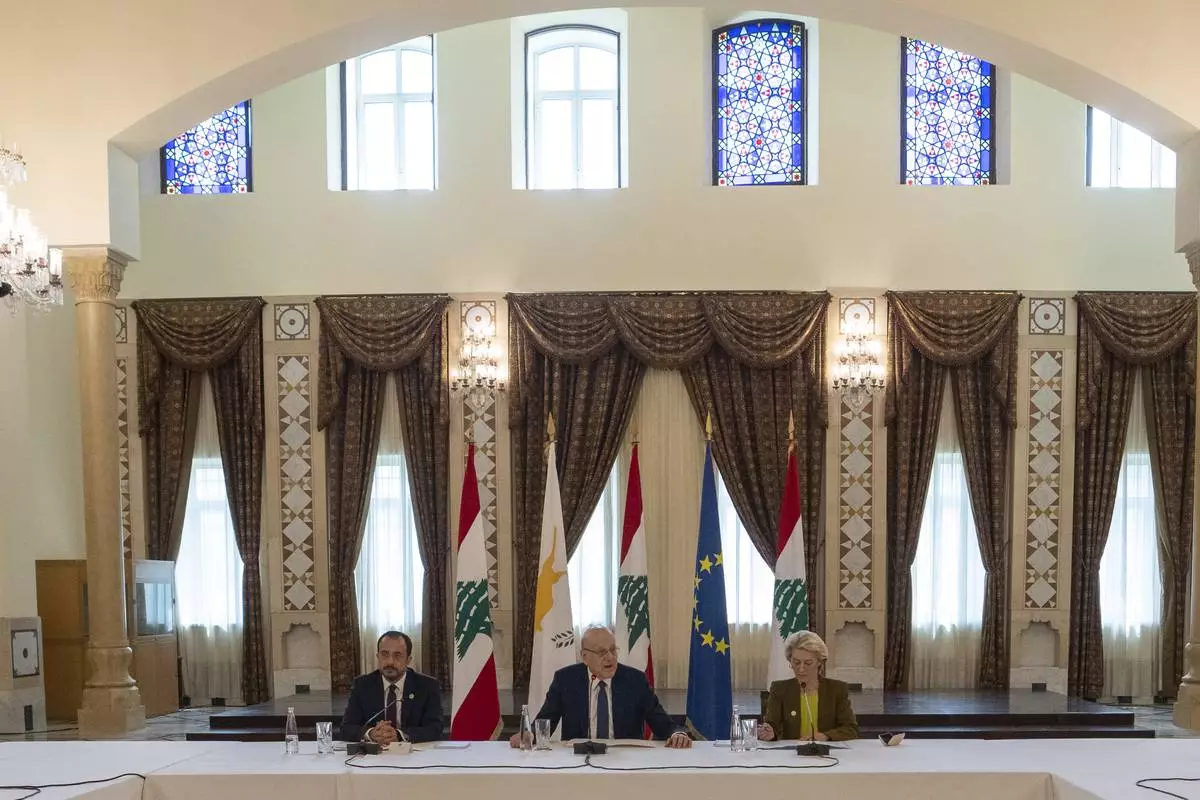
Lebanese caretaker Prime Minister Najib Mikati, center, speaks during his meeting with Cyprus' President Nikos Christodoulides, left, and President of the European Commission Ursula von der Leyen at the government palace in Beirut, Lebanon, Thursday, May 2, 2024. (AP Photo/Hassan Ammar)
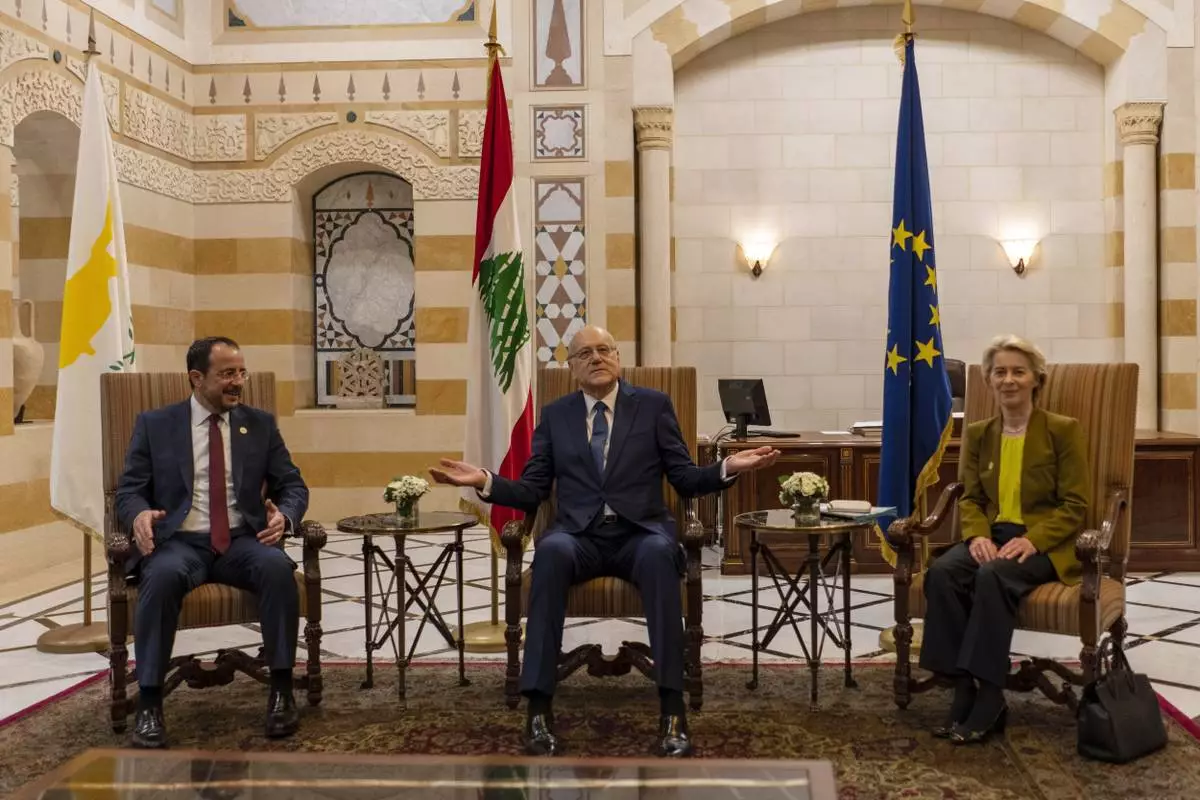
Lebanese caretaker Prime Minister Najib Mikati, center, welcomes Cyprus' president Nikos Christodoulides, left, and President of the European Commission Ursula von der Leyen before their meeting at the government palace in Beirut, Lebanon, Thursday, May 2, 2024. (AP Photo/Hassan Ammar)
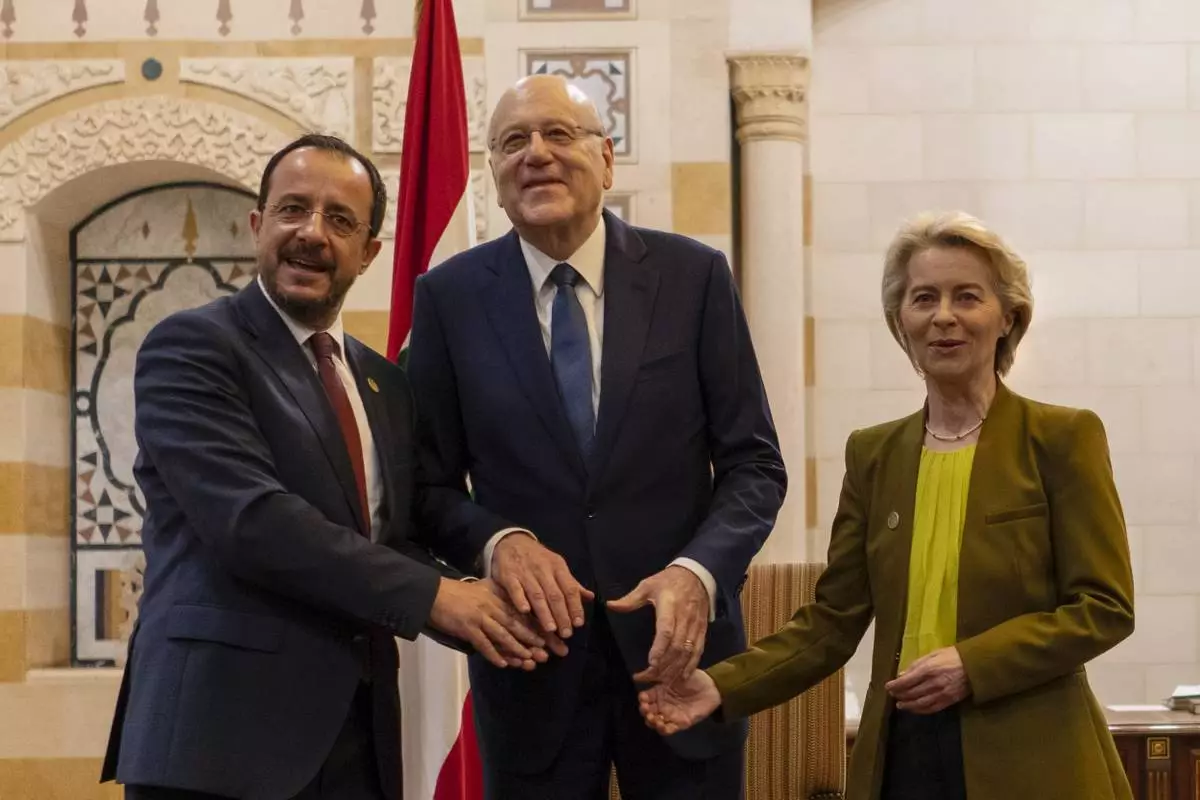
Lebanese caretaker Prime Minister Najib Mikati, center, Cyprus' President Nikos Christodoulides, left, and President of the European Commission Ursula von der Leyen pose for photograph at the government palace in Beirut, Lebanon, Thursday, May 2, 2024. (AP Photo/Hassan Ammar)
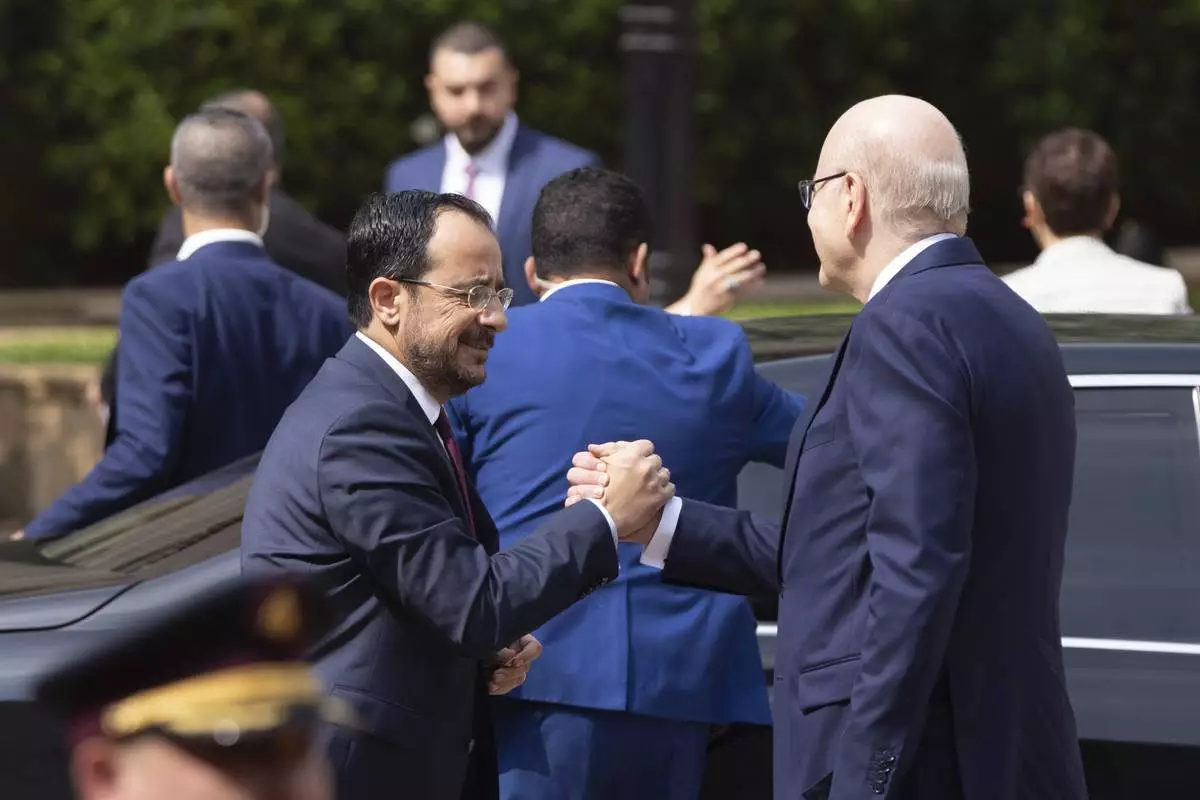
Lebanese caretaker Prime Minister Najib Mikati, right, welcomes Cyprus' president Nikos Christodoulides before their meeting at the government palace in Beirut, Lebanon, Thursday, May 2, 2024. (AP Photo/Hassan Ammar)

Cyprus' President Nikos Christodoulides, left, and President of the European Commission Ursula von der Leyen, center, review an honor guard upon their arrival to meet with the Lebanese Speaker Nabih Berri, in Beirut, Thursday, May 2, 2024. (AP Photo/Hussein Malla)

Lebanese caretaker Prime Minister Najib Mikati, center, speaks during his meeting with Cyprus' President Nikos Christodoulides, left, and President of the European Commission Ursula von der Leyen at the government palace in Beirut, Lebanon, Thursday, May 2, 2024. (AP Photo/Hassan Ammar)
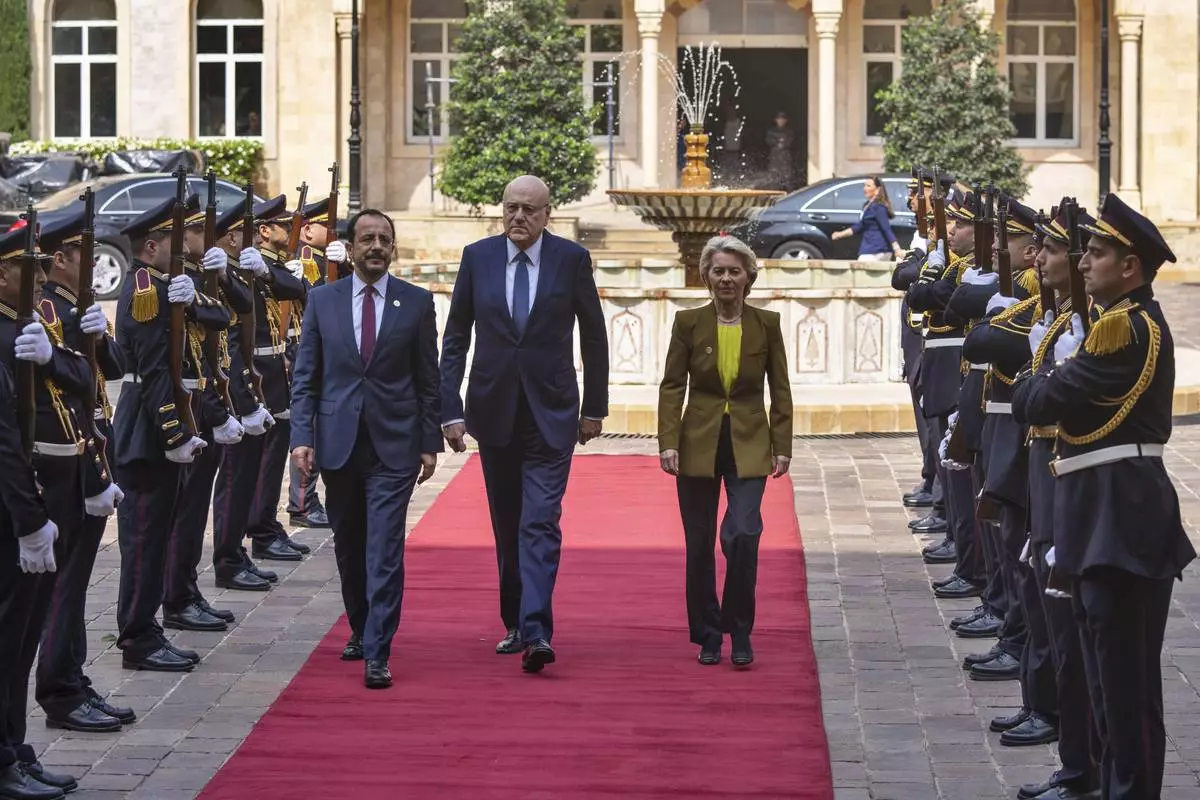
Lebanese caretaker Prime Minister Najib Mikati, center, welcomes Cyprus' President Nikos Christodoulides, left, and President of the European Commission Ursula von der Leyen at the government palace in Beirut, Lebanon, Thursday, May 2, 2024. (AP Photo/Hassan Ammar)












